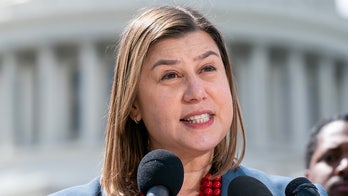WASHINGTON – Despite a threatened presidential veto, Congress has voted to scrap new federal rules intended to protect smaller streams, tributaries and wetlands from development and pollution.
The House voted 253-166 on Wednesday for a "resolution of disapproval," a measure that would void the rules if President Barack Obama signed it. He has said he won't, and neither the House nor the Senate appears to have enough votes to override a veto. The Senate passed the resolution 53-44 last November.
The Obama administration says the rules from the Environmental Protection Agency and the U.S. Army Corps of Engineers last year would safeguard drinking water for 117 million people. In its veto threat before the Senate vote last year, the White House said that more than 1 in 3 Americans get their drinking water from rivers, lakes, and reservoirs that are at risk of pollution from smaller upstream sources.
Republicans and some Democrats representing rural areas say the regulations are costly, confusing and amount to a government power grab, giving federal regulators unprecedented control of small bodies of water on private land. Federal courts have put the rules on hold as judges review lawsuits.
"Across the nation, communities and individuals face the frightening prospect of the federal government disrupting their daily lives in areas it has no right to get involved in," said Majority Leader Kevin McCarthy, R-Calif., in a statement after the vote.
The rules clarify which smaller waterways fall under federal protection after two Supreme Court rulings left the reach of the Clean Water Act uncertain. Those decisions in 2001 and 2006 left 60 percent of the nation's streams and millions of acres of wetlands without clear federal protection, according to the EPA, causing confusion for landowners and government officials.
The EPA says the new rules would force a permitting process only if a business or landowner took steps that would pollute or destroy the affected waters -- those with a "direct and significant" connection to larger bodies of water downstream that already are protected. For example, that could include tributaries that show evidence of flowing water.
Farm and business groups are among the rules' chief opponents, and more than half the states have sued the government in an attempt to block them. Officials from states such as Georgia, New Mexico and Wisconsin have suggested the regulations could be harmful to farmers and landowners who might have to pay for extra permits, face work delays or redesign their property to manage small bodies of water on their own private land.
The EPA has argued the criticism is overblown. Since the rules were proposed last year, the agency has been working to clear up misconceptions, such as assertions that average backyard puddles would be regulated. Current exemptions from the Clean Water Act for farming practices, including plowing, seeding and the movement of livestock, among other things, will continue.




